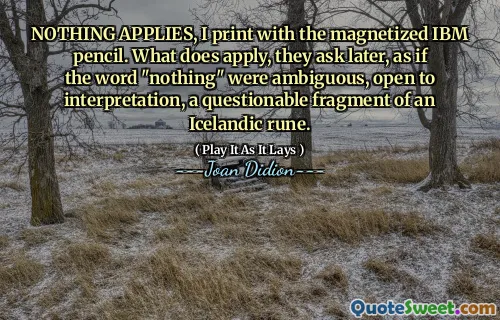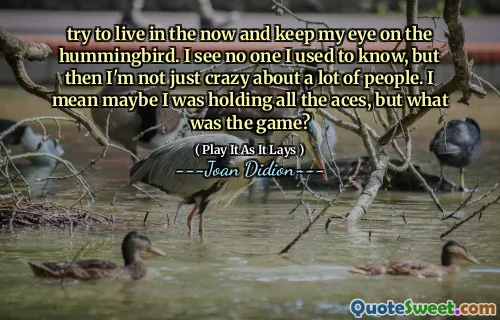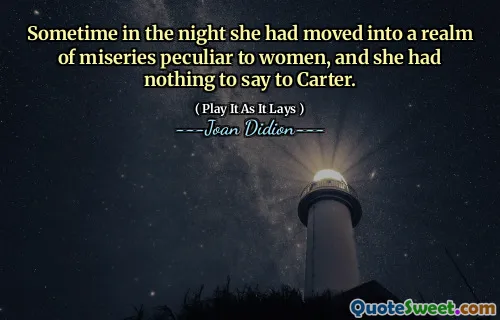
You talk crazy any more and I'll leave. Leave. For Christ's sake leave. She would not take her eyes from the dry wash. All right. Don't, he would say then. Don't. Why do you say those things? Why do you fight? He would sit on the bed and put his head in his hands. To find out if you're alive.
This quote evokes a profound sense of emotional turmoil and despair, encapsulating the fracturing dynamics of a troubled relationship. The repetition of "Leave" and the raw plea "For Christ's sake leave" suggest an urgent impatience mixed with desperation, revealing a volatile atmosphere charged with conflict. The silent observation—"She would not take her eyes from the dry wash"—offers a vivid image of withdrawal or numbness, as if the character is physically present but mentally detached. This contrast highlights the isolation and emotional disconnect between individuals caught in the cycle of confrontation and retreat.
The dialogue "Don't, he would say then. Don't. Why do you say those things? Why do you fight?" paints a picture of vulnerability and confusion. It reflects the human need for connection amidst chaos, a desire to halt the hurtful exchanges yet struggling to understand their root causes. The act of sitting on the bed and putting his head in his hands encapsulates exhaustion and resignation, an almost ritualistic gesture signaling profound sadness or defeat.
Ultimately, "To find out if you're alive" crystallizes the complex psychology of relationships under strain—it hints that conflict and emotional outbursts may paradoxically be proof of engagement, the only signs that one party is still present and real. Joan Didion masterfully captures the painful contradictions of love and alienation, as individuals grapple with the fragile line between connection and separation. This passage resonates deeply as a quiet meditation on human intimacy, vulnerability, and the sometimes brutal honesty required to feel truly alive in the presence of another.











